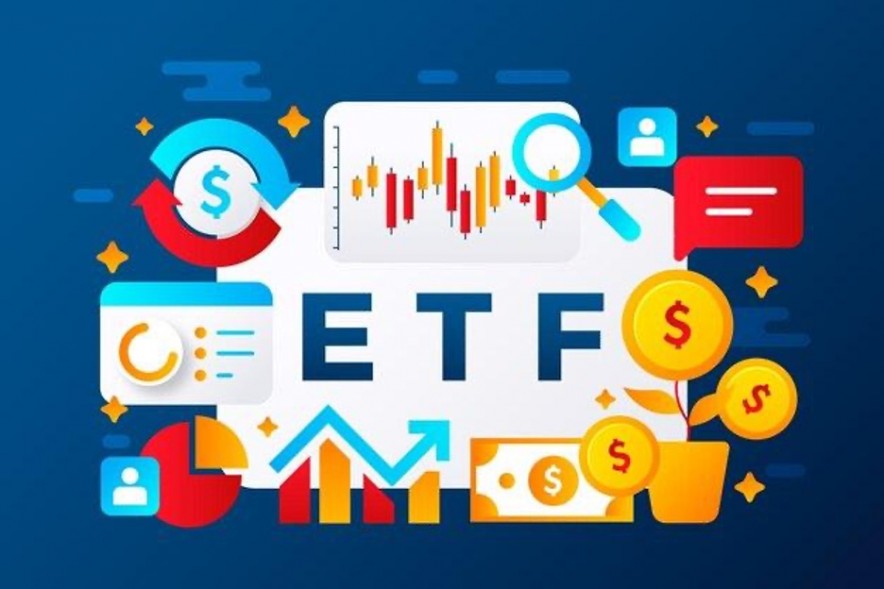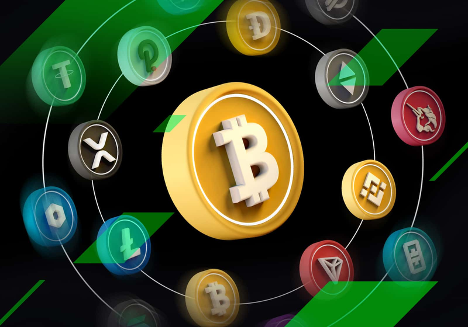Ethereum Futures Are Falling Short After the First Trading Days ―But Why?
Dec 11, 2023, 7:05pm
Also called exchange-traded funds, cryptocurrency ETFs are done between investors trying to guess the price of a crypto future.
Their main benefit includes the availability of gaining exposure without having to purchase the asset, which works similarly to standard futures contracts for stocks.
Bitcoin and Ethereum Futures especially are trying to stick to the market for some time, but due to lack of regulation and the SEC’s strict approach, they’ve been influenced upon their first trading hours. Unfortunately, despite investors’ excitement about this new asset, there wasn’t much trading when the first nine Ethereum ETFs made their first appearances, so the Ethereum price lost its momentum.
ETFs have been praised for so long, but now all the hype seems gone. So, what is the reason for that?
Why are ETFs seen as the most significant investments?
ETFs come as an additional asset that completes every investor’s portfolio, diversifying it successfully. The reason why so many of them wanted to have their ETFs include aspects such as their low costs, versatility, transparency and tax efficiency. When only BTC ETFs were doable in the beginning, experts compared these assets with NFTs, which are mostly known for being used on the Ethereum blockchain.
However, they also expanded to Ethereum because the blockchain allows them the environment for development, and the community is most eager to try new features of the Web3 world. Still, some aspects come as impediments in this process.
Why don’t financial institutions allow ETFs?
Like with most digital assets, institutions such as the SEC are not happy for another one to appear because this means an additional effort to regulate and make them taxable. This is the case with ETFs, the products that, despite their benefits, are feared by institutions.
Hence, it’s important to understand the reasons behind such decisions because looking within the ETF shows they’re not perfect. For example, while investors see them as great assets for diversification, they’re still hit by volatility, especially those linked with specific industries. Most of the time, investing in ETFs that target a varied market index is best because this truly allows diversification through the assets’ values.
Another factor contributing to the lack of trust in ETFs includes specific financial aspects about the country from which the ETFs are coming, and that’s the case for international ones. If a country’s economy is unstable, the ETFs’ course will be influenced despite being part of an excellent project.
BTC ETFs succeeded on the contrary
At the end of 2021, the first BTC Futures were deployed, and their roaring success is now compared to Ethereums’. While the SEC has simply got a warning just now, which may have influenced Ethereum’s ETF when it comes to Bitcoin, things are different since the institution allowed investors to buy and sell them.
One reason for that would be that the SEC considers Bitcoin as a commodity, which would separate the assets from the rest of the securities cryptocurrencies, meaning they must be working under the SEC regulations.
Considering they approved Bitcoin ETFs and are not that strict with it, this might be a good thing for the upcoming adoption of the coin, but it leaves the other altcoins aside, which is not fair for the market they’re coming from. Investors should be able to have a choice regarding the preferred assets, but this only leaves them one option.
Are ETFs the asset of the future?
Many investors believe ETFs are the assets of the future because they have low costs and are more efficient compared to other crypto investments. However, they’ve only been on the market for a short time, so we can’t tell for sure what’s to come.
Some experts consider their popularity to decline in a few years because the high competition
from the upcoming developed technologies might pose particular challenges to ETFs and their expansion. Since ETFs are both short-term and long-term investments, it’s less likely that ETFs will disappear in the future. At the moment, investors might only get interested in them because they’ll quickly shift their portfolios, but only a few may use them for the long term. Plus, ETFs are generally low-risk, so there isn’t much to lose when investing in them, whether they’re linked to Bitcoin or Ethereum.
ETF trends to look out for
Since they’re trending this year, experts noticed a few trends regarding ETFs, meaning investors have already shaped their portfolio preferences. For example, they have more choices recently compared to 2021 as many ETF fund launches, openings, and closures occur.
Another noticeable tendency is for ETFs to grow faster than mutual funds because they have a broader feature market and are also stirring the online environment by being involved with processes with the SEC.
If we talk about intense competition in the future, that doesn’t mean it’s not present now. That’s because new funds have to compete with the first ones, and each has specific benefits, from trust to unique features. So, whether they’re managed passively or actively, they’ll have to show what they have best.
In terms of portfolio management, we can say that ETF funds tend to be better managed actively, mostly because it’s part of regulatory requirements. Hence, investors may need to put their investments on full display daily. Although the latest rule by the SEC requires investors to do this quarterly, this only shows how ETFs will be more actively managed since holders want more control over their assets.
Finally, technology severely impacts these assets because it will take investor behavior to the next level of expectations. Therefore, ETFs that will be more advanced and innovative are more likely to win the market compared to others.
Final considerations
Ethereum ETFs have just been released, but they’re not performing as expected or even close compared to Bitcoin ETFs. Unfortunately, the lack of regulation contributes to this phenomenon, and also the fact that investors were not provided with accurate information and were instead informed about decision delays.





